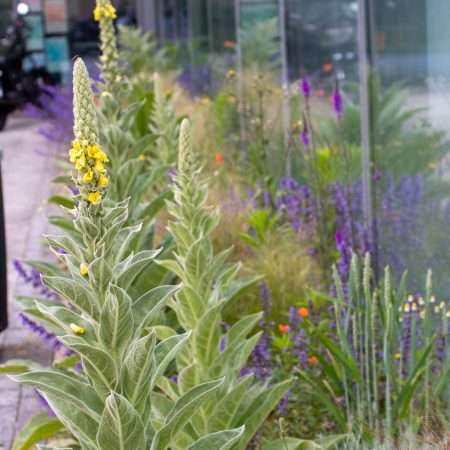The University has waste collection and recycling facilities within each campus and all university managed accommodation blocks. The waste streams include general waste, dry mixed recycling, glass, WEEE waste and hazardous waste. Staff and students can also donate unwanted items via the British Heart Foundation collection points and the Student Union collects unwanted food and utility items to stock their food banks.

Page last reviewed in March 2025
During term time the University generates around 23.7 tonnes of general waste and 10.5 tonnes of recycling each month; with over 417 tonnes produced in 2023/24, this excludes accommodation generated waste. The general waste generated by the University is taken to a local sorting facility, where readily recyclable items are extracted from the waste stream for recycling. The remaining residual waste is then sent to a local Energy from Waste facility, where it is burnt to generate electricity and heat.
The University is committed to reducing it’s overall waste generation and actively encourages staff to follow the waste hierarchy. It also provides facilities for students, staff and visitors to be able to separate their recycling from waste to dispose of, waste and recycling bins on campus have signage detailing what can and can’t be recycled within the bins.
The graph below shows how much waste and recycling the university (excluding accommodation waste) generated during 2023/24.

This second graph details how much waste and recycling was produced per student for each academic year:

Download the posters below to see what you can/can’t recycle on campus, or email estatessupport@lincoln.ac.uk with any waste related questions you may have.
Recycling in Student Accommodation
Each university run accommodation has waste collection services. Within each kitchen you’ll find separate waste and recycling bins.
Within the external bin store areas you will find waste, recycling, glass and food bins, it is the responsibility of those living within student accommodation to correctly segregate their waste into the correct bins. For further advice on what goes in each bin, see the posters linked to above.


